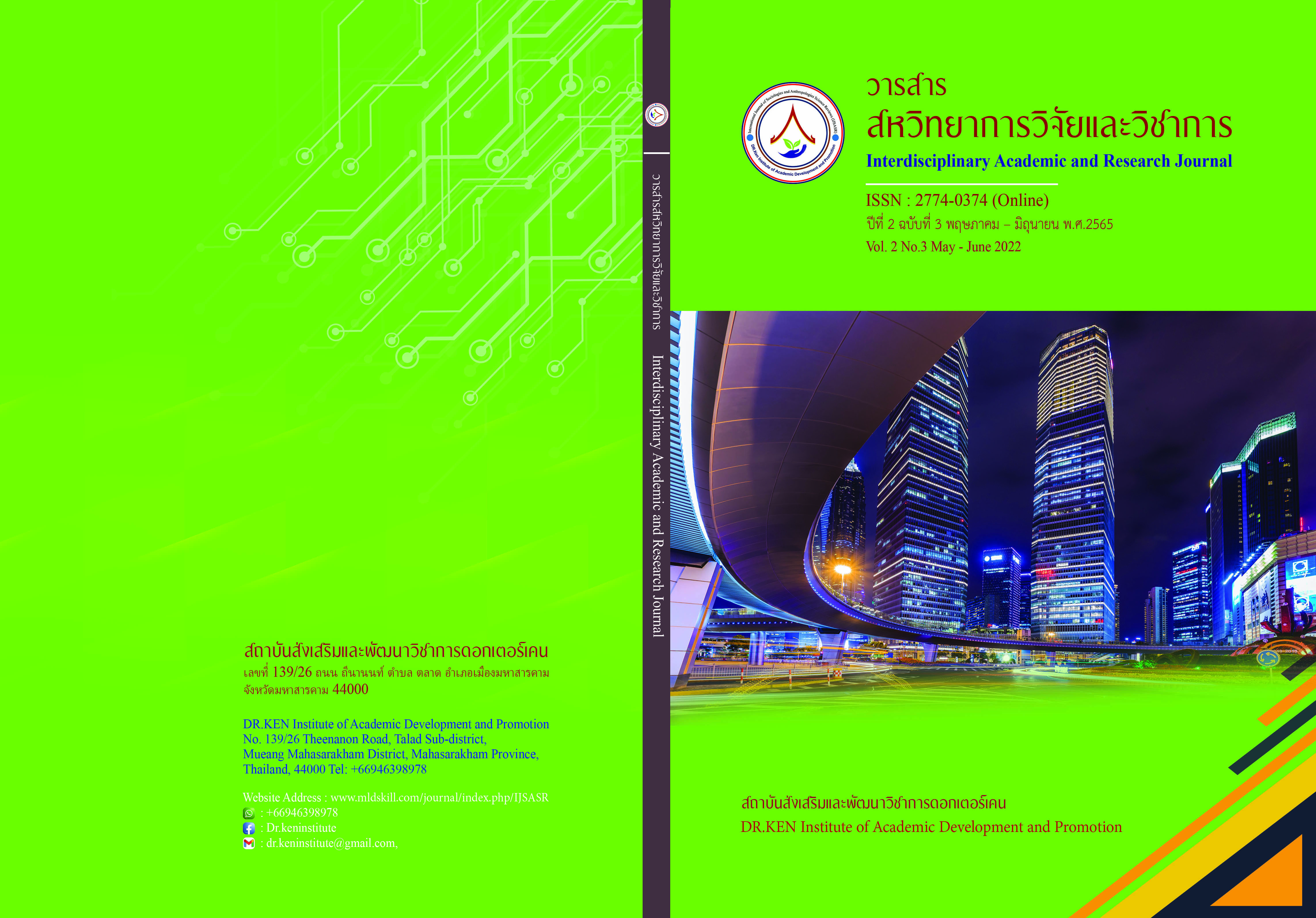Beliefs about Poverty and Wealth Among High School Students
DOI:
https://doi.org/10.14456/iarj.2022.41Keywords:
Beliefs; , Poverty; , Wealth; , High School Students; , Filipino StudentsAbstract
While most research projects on poverty and wealth are quantitative, there is a dearth of qualitative research, particularly among students in the Philippines. As a result, this study uses a qualitative case study to explore high school students' beliefs about poverty and wealth. Data were collected from eight high school students from a Philippine all-boys school. All the participants were single and male. They were 13 to 17 years old. Qualitative data were collected utilizing Google Meet for online semi-structured interviews and focus group discussions. The responses were transcribed and recorded. Data were analyzed using thematic analysis. Findings revealed four themes. For the beliefs on poverty, (1) lack of opportunities results in poverty; (2) the root of poverty is unwise decisions. For the beliefs on wealth, (3) wealth reinforces life satisfaction; and (4) wealth changes personality. This research can be beneficial for teachers in the field of social sciences who touch on topics related to poverty and wealth. Other professionals working with high school students can use this as a tool to spark meaningful conversations. Using other research methodologies and expanding the number of participants and genders involved are suggested.
References
Asian Development Bank. (2009). Poverty in the Philippines: Causes, Constraints, and Opportunities. Asian Development Bank.
Buffet, W. (2006). Warren Buffett - the giving pledge. [Online] https://givingpledge.org/pledger?pledgerId=177
Collins Dictionary. (2011). Wealth. Collins Dictionary.
Corley, T. C. (2010). Rich habits: The daily success habits of wealthy individuals. Hillcrest Publishing Group.
Encyclopedia Britannica. (2020). Poverty. Encyclopedia Britannica.
Han, Y. R. (2016). Trash of the Count's Family (Vol. 1). Independent Publisher.
Kraus, M. W., Piff, P. K., & Keltner, D. (2009). Social class, sense of control, and social explanation. Journal of Personality and Social Psychology, 97(6), 992.
Marsh, S. (2009). German billionaire commits suicide after VW losses. Reuters. [Online] https://www.reuters.com/article/us-merckle-newsmaker-sb-idUSTRE5055O820090106
Palmer, B. (2022). Key reasons to invest in real estate. [Online] https://investopedia.com/articles/mortgages-real-estate/11/key-reasons-invest-real-estate.asp
Piff, P. (2013). Does money make you mean? Ted Talks. [Online] https://youtu.be/bJ8Kq1wucsk
Pogosyan, M. (2018). In helping others, you help yourself. Psychology Today. [Online] https://psychologytoday.com/ie/blog/between-cultures/201805/in-helping-others-you-help-yourself
Primmer, J. (2018). Belief. Primmer, Justin, The Stanford Encyclopedia of Philosophy. Stanford, CA: The Metaphysics Research Lab.
Rao, T. S., Asha, M. R., Rao, K. J., & Vasudevaraju, P. (2009). The biochemistry of belief. Indian Journal of Psychiatry, 51(4), 239-241.
Robbins, A., Robbins, T., & Mallouk, P. (2017). Unshakeable: Your financial freedom playbook. Simon and Schuster.
Rutkowski, J. J. (2015). Employment and poverty in the Philippines. Open Knowledge Repository. [Online] https://openknowledge.worldbank.org/handle/10986/26320
Taylor, D. B., & Chang, K. (2021). Jeff Bezos will fly aboard Blue Origin's first human trip to space. The New York Times. [Online] https://www.nytimes.com/2021/06/07/business/jeff-bezos-space.html
Downloads
Published
How to Cite
Issue
Section
License
Copyright (c) 2022 Louie Giray, John Denmark Aquino, Rene Ruel Catubig Jr., Jerond Marie Diaz, Matthew Emmanuel Labrador

This work is licensed under a Creative Commons Attribution-NonCommercial-NoDerivatives 4.0 International License.
Copyright on any article in the Interdisciplinary Academic and Research Journal is retained by the author(s) under the under the Creative Commons Attribution-NonCommercial-NoDerivatives 4.0 International License. Permission to use text, content, images, etc. of publication. Any user to read, download, copy, distribute, print, search, or link to the full texts of articles, crawl them for indexing, pass them as data to software, or use them for any other lawful purpose. But do not use it for commercial use or with the intent to benefit any business.
















.png)


